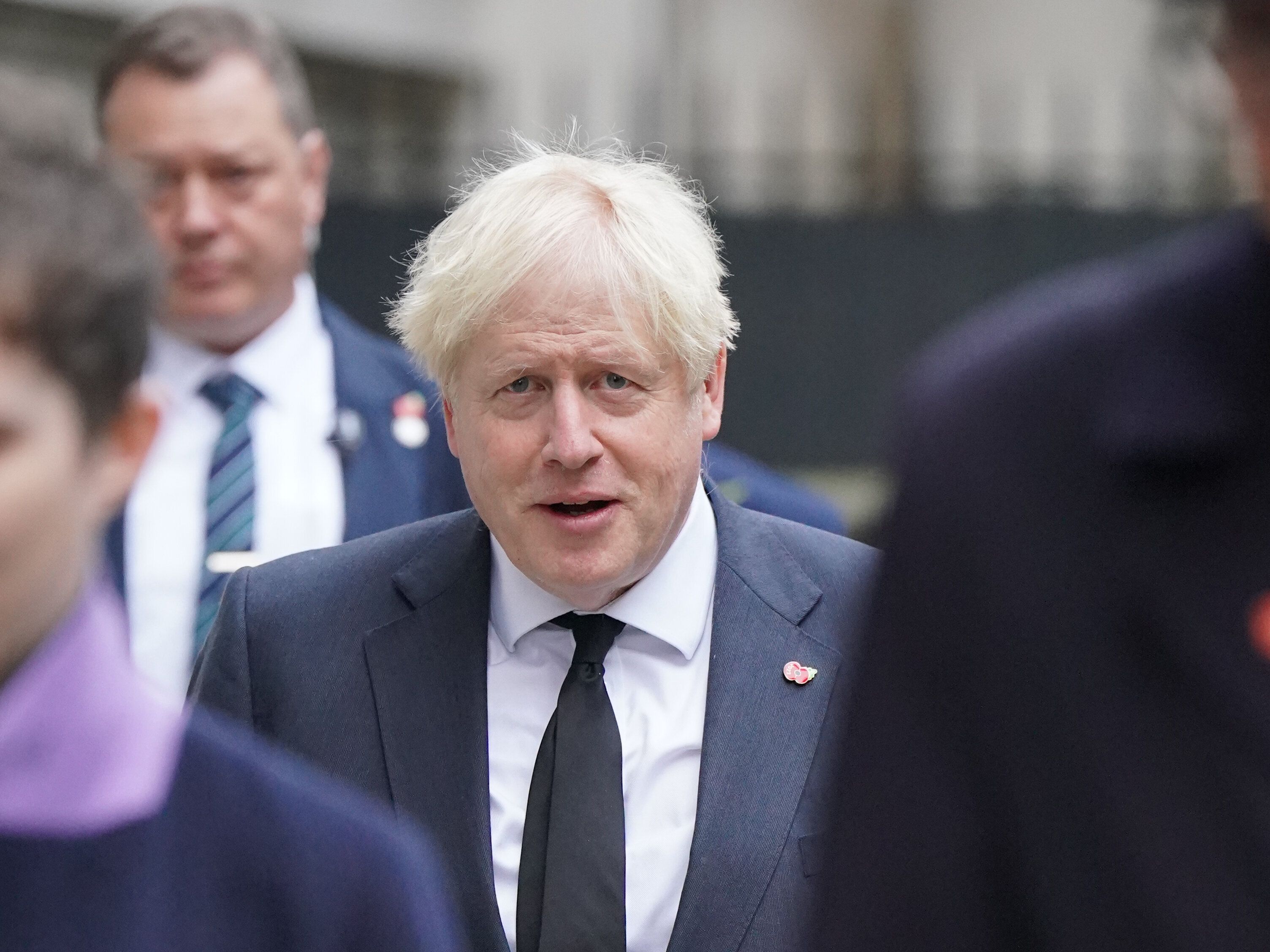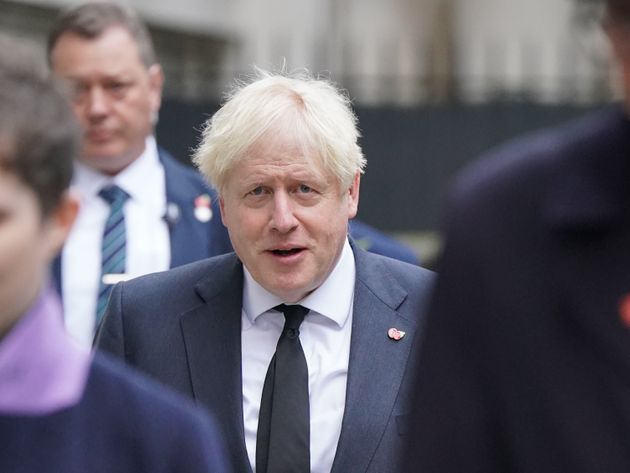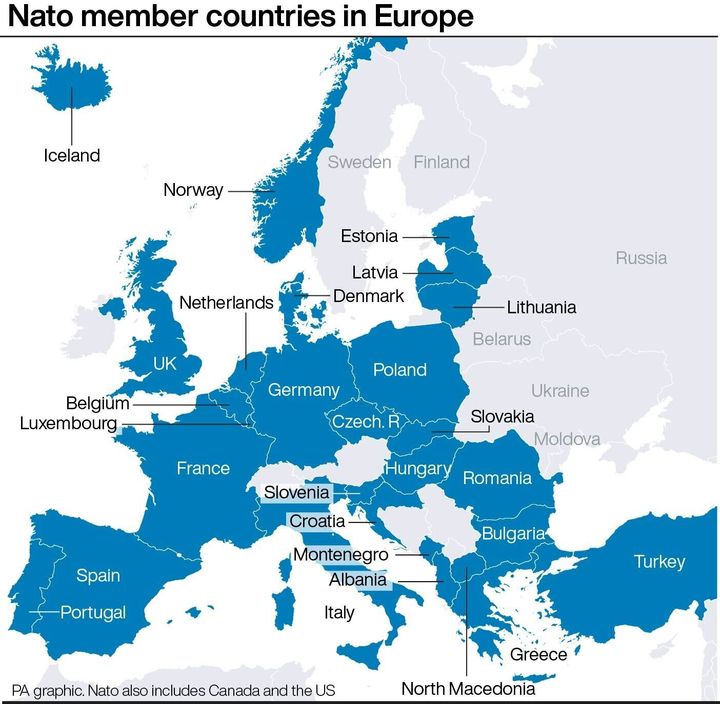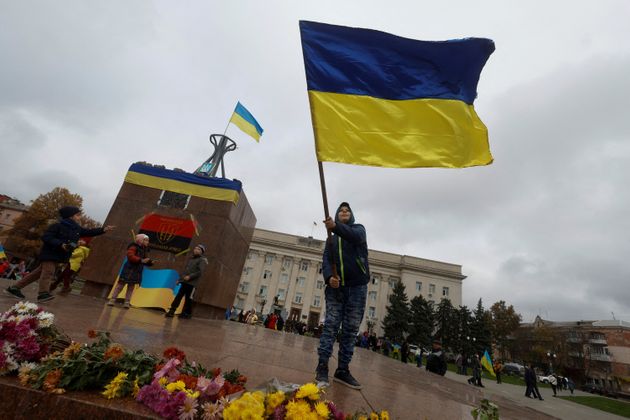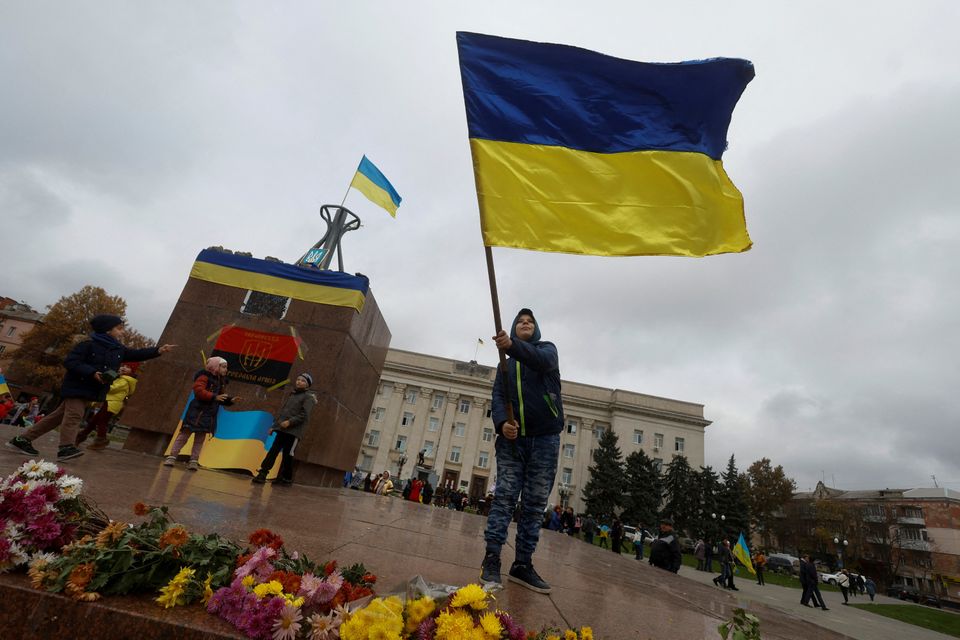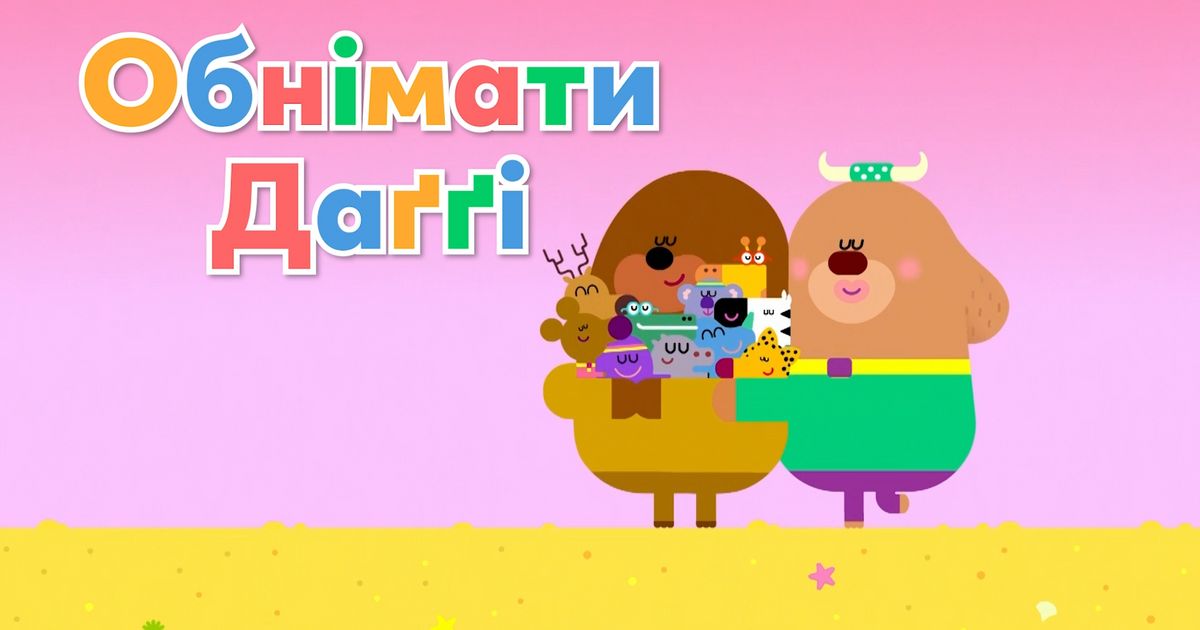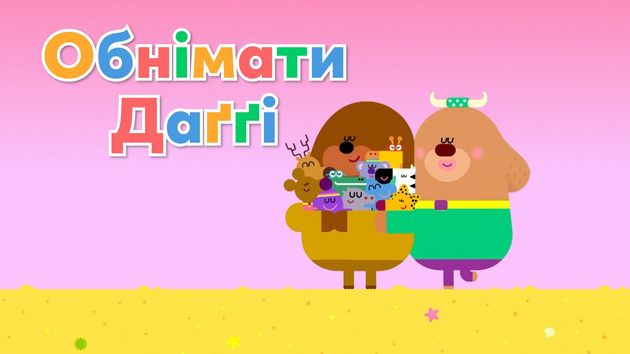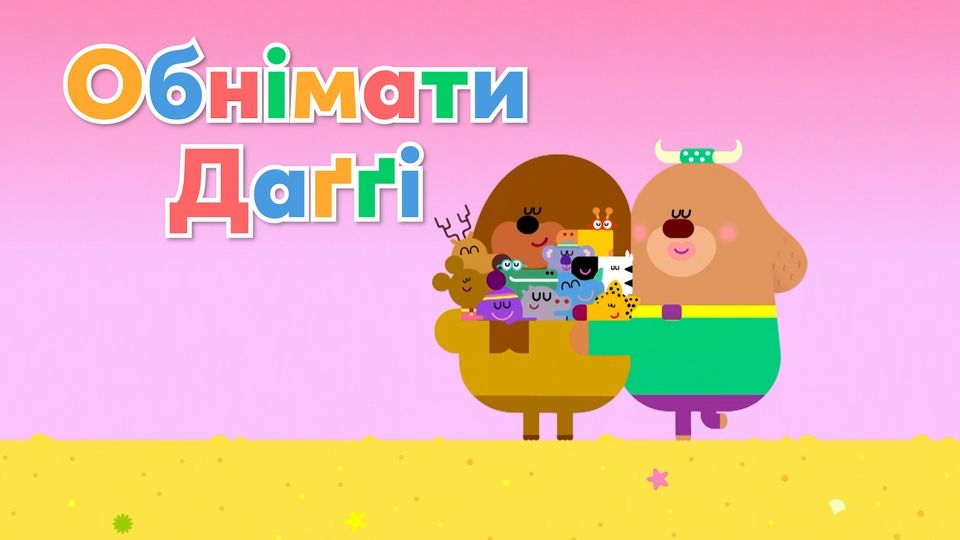<div class="js-react-hydrator" data-component-name="YouTube" data-component-id="8411" data-component-props="{"itemType":"video","index":7,"contentListType":"embed","code":"
","type":"video","meta":{"url":"https://www.youtube.com/watch?v=-rNKzzPulyM","type":"video","version":"1.0","title":"The Welcome Badge | Duggee Songs | Hey Duggee","author":"Hey Duggee Official","author_url":"https://www.youtube.com/channel/UCj_mFUb-47d9QNiJ5556LjQ","provider_name":"YouTube","description":"🐾 SUBSCRIBE TO THE SQUIRREL CLUB: http://bit.ly/SubscribeToHeyDuggee\n\nAs seen on CBeebies! Watch all Hey Duggee full episodes on BBC iPlayer: https://www.bbc.co.uk/iplayer/episodes/b07xdmgk/hey-duggee\n \nThe Welcome Badge | Duggee Songs| #HeyDuggee Official\n \nDuggee and the Squirrels are having some special friends coming from Ukraine, including Mavka and Swampy the Kittyfrog. Join them in a big Duggee Welcome song. Hello! Privit!\n \n*Watch More*\nHey Duggee: Badges: http://bit.ly/HeyDuggeeBadges\nHey Duggee: Best Bits: http://bit.ly/HeyDuggeeBestBits\nHey Duggee: Mini Episodes: http://bit.ly/HeyDuggeeMiniEpisodes\n \n*More about Hey Duggee*\nWelcome to the Official YouTube channel for HEY DUGGEE! Duggee is a big friendly dog who runs The Squirrel Club – a place where kids take part in all kinds of activities & have adventures. Join the members of the Squirrel Club; Betty, Happy, Norrie, Roly and Tag as they earn activity badges.\n \nCreated by STUDIO AKA for CBEEBIES & BBC STUDIOS\n© STUDIO AKA\n \n🖥 Website: https://www.heyduggee.com\n🐔 Twitter: https://twitter.com/HeyDuggee\n🐶 Instagram: http://instagram.com/HeyDuggee\n🐊 Facebook: https://www.facebook.com/heyduggee\n \nThis is a commercial channel from BBC Studios.","thumbnail_url":"https://i.ytimg.com/vi/-rNKzzPulyM/maxresdefault.jpg","thumbnail_width":1280,"thumbnail_height":720,"cache_age":86400,"options":{"_start":{"label":"Start from","value":"1","placeholder":"ex.: 11, 1m10s"},"_end":{"label":"End on","value":"","placeholder":"ex.: 11, 1m10s"},"_cc_load_policy":{"label":"Closed captions","value":false}}},"fullBleed":false,"flags":[],"enhancements":{},"options":{"theme":"life","device":"desktop","editionInfo":{"id":"uk","name":"U.K.","link":"https://www.huffingtonpost.co.uk","locale":"en_GB"},"slideshowAd":{"scriptTags":[],"otherHtml":""},"slideshowEndCard":{"scriptTags":[{"attribs":{},"scriptBody":"\r\n (function(){\r\n var c = document.getElementById(‘taboola-endslate-thumbnails’);\r\n c.id += ‘-‘ + Math.round(Math.random()*1e16);\r\n \r\n var taboolaParams = {\r\n loader: \"//cdn.taboola.com/libtrc/aol-huffingtonpost/loader.js\",\r\n mode: \"thumbnails-b\",\r\n container: c.id,\r\n placement: \"Endslate Thumbnails\",\r\n target_type: \"mix\"\r\n };\r\n \r\n if (typeof window.modulousQueue === \"function\") {\r\n \twindow.modulousQueue.add(function(){ doTaboola(taboolaParams); });\r\n } else {\r\n \tdoTaboola(taboolaParams);\r\n }\r\n }());\r\n"}],"otherHtml":"
"},"isMapi":false,"isAmp":false,"isVideoEntry":false,"isMt":false,"entryId":"6360fe56e4b045895a966023","entryTagsList":"family-time,ukraine,uk-tv,kindness,childrens-tv,hey-duggee","sectionSlug":"parents","deptSlug":null,"sectionRedirectUrl":null,"subcategories":"lifestyle","isWide":false,"headerOverride":null,"noVideoAds":false,"disableFloat":false,"isNative":false,"commercialVideo":{"provider":"custom","site_and_category":"uk.parents","package":null},"isHighline":false,"vidibleConfigValues":{"cid":"60afc140cf94592c45d7390c","disabledWithMapiEntries":false,"overrides":{"all":"60b8e525cdd90620331baaf4"},"whitelisted":["56c5f12ee4b03a39c93c9439","56c6056ee4b01f2b7e1b5f35","59bfee7f9e451049f87f550b","5acccbaac269d609ef44c529","570278d2e4b070ff77b98217","57027b4be4b070ff77b98d5c","56fe95c4e4b0041c4242016b","570279cfe4b06d08e3629954","5ba9e8821c2e65639162ccf1","5bcd9904821576674bc55ced","5d076ca127f25f504327c72e","5b35266b158f855373e28256","5ebac2e8abddfb04f877dff2","60b8e525cdd90620331baaf4","60b64354b171b7444beaff4d","60d0d8e09340d7032ad0fb1a","60d0d90f9340d7032ad0fbeb","60d0d9949340d7032ad0fed3","60d0d9f99340d7032ad10113","60d0daa69340d7032ad104cf","60d0de02b627221e9d819408"],"playlists":{"default":"57bc306888d2ff1a7f6b5579","news":"56c6dbcee4b04edee8beb49c","politics":"56c6dbcee4b04edee8beb49c","entertainment":"56c6e7f2e4b0983aa64c60fc","tech":"56c6f70ae4b043c5bdcaebf9","parents":"56cc65c2e4b0239099455b42","lifestyle":"56cc66a9e4b01f81ef94e98c"},"playerUpdates":{"56c6056ee4b01f2b7e1b5f35":"60b8e525cdd90620331baaf4","56c5f12ee4b03a39c93c9439":"60d0d8e09340d7032ad0fb1a","59bfee7f9e451049f87f550b":"60d0d90f9340d7032ad0fbeb","5acccbaac269d609ef44c529":"60d0d9949340d7032ad0fed3","5bcd9904821576674bc55ced":"60d0d9f99340d7032ad10113","5d076ca127f25f504327c72e":"60d0daa69340d7032ad104cf","5ebac2e8abddfb04f877dff2":"60d0de02b627221e9d819408"}},"connatixConfigValues":{"defaultPlayer":"8b034f64-513c-4987-b16f-42d6008f7feb","clickToPlayPlayer":"5a777b9b-81fe-41a6-8302-59e9953ee8a2","videoPagePlayer":"19654b65-409c-4b38-90db-80cbdea02cf4"},"customAmpComponents":[],"ampAssetsUrl":"https://amp.assets.huffpost.com","videoTraits":null,"positionInUnitCounts":{"buzz_head":{"count":0},"buzz_body":{"count":0},"buzz_bottom":{"count":0}},"positionInSubUnitCounts":{"article_body":{"count":2},"before_you_go_slideshow":{"count":0}},"connatixCountsHelper":{"count":0},"buzzfeedTracking":{"context_page_id":"6360fe56e4b045895a966023","context_page_type":"buzz","destination":"huffpost","mode":"desktop","page_edition":"en-uk"},"tags":[{"name":"family time","slug":"family-time","links":{"relativeLink":"topic/family-time","permalink":"https://www.huffingtonpost.co.uk/topic/family-time","mobileWebLink":"https://m.huffingtonpost.co.uk/topic/family-time"},"section":{"title":"Parents","slug":"parents"},"topic":{"title":"Family Time","slug":"family-time","overridesSectionLabel":false},"url":"https://www.huffingtonpost.co.uk/news/family-time/"},{"name":"Ukraine","slug":"ukraine","links":{"relativeLink":"topic/ukraine","permalink":"https://www.huffingtonpost.co.uk/topic/ukraine","mobileWebLink":"https://m.huffingtonpost.co.uk/topic/ukraine"},"topic":{"title":"Ukraine","slug":"ukraine","overridesSectionLabel":false},"url":"https://www.huffingtonpost.co.uk/news/ukraine/"},{"name":"uk tv","slug":"uk-tv","links":{"relativeLink":"topic/uktv","permalink":"https://www.huffingtonpost.co.uk/topic/uktv","mobileWebLink":"https://m.huffingtonpost.co.uk/topic/uktv"},"topic":{"title":"UK TV","slug":"uktv","overridesSectionLabel":false},"url":"https://www.huffingtonpost.co.uk/news/uktv/"},{"name":"kindness","slug":"kindness","links":{"relativeLink":"section/kindness","permalink":"https://www.huffingtonpost.co.uk/section/kindness","mobileWebLink":"https://m.huffingtonpost.co.uk/section/kindness"},"url":"https://www.huffingtonpost.co.uk/news/kindness/"},{"name":"children’s tv","slug":"childrens-tv","links":{"relativeLink":"section/childrens-tv","permalink":"https://www.huffingtonpost.co.uk/section/childrens-tv","mobileWebLink":"https://m.huffingtonpost.co.uk/section/childrens-tv"},"url":"https://www.huffingtonpost.co.uk/news/childrens-tv/"},{"name":"Hey Duggee","slug":"hey-duggee","links":{"relativeLink":"section/hey-duggee","permalink":"https://www.huffingtonpost.co.uk/section/hey-duggee","mobileWebLink":"https://m.huffingtonpost.co.uk/section/hey-duggee"},"url":"https://www.huffingtonpost.co.uk/news/hey-duggee/"}],"cetUnit":"buzz_body","bodyAds":["
\r\n\r\n HPGam.cmd.push(function(){\r\n\t\treturn HPGam.render(\"inline-1\", \"entry_paragraph_1\", false);\r\n });\r\n\r\n","
\r\n\r\n HPGam.cmd.push(function(){\r\n\t\treturn HPGam.render(\"inline\", \"entry_paragraph_2\", false);\r\n });\r\n\r\n","
\r\n\r\n HPGam.cmd.push(function(){\r\n\t\treturn HPGam.render(\"inline-2\", \"entry_paragraph_3\", false);\r\n });\r\n\r\n","
\r\n\r\n HPGam.cmd.push(function(){\r\n\t\treturn HPGam.render(\"inline-infinite\", \"repeating_dynamic_display\", false);\r\n });\r\n\r\n"],"adCount":0}}”>































